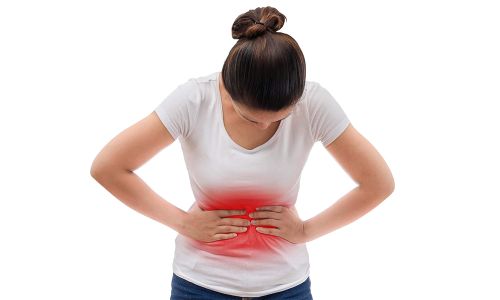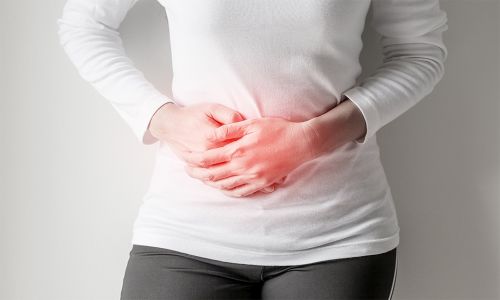Hemorrhoids, commonly known as hemorrhoids, occur when the veins around the anus and rectum swell. It is triggered by factors such as constipation, sitting for long periods of time, insufficient fiber consumption, pregnancy and excessive physical strain. While internal hemorrhoids are usually painless, they can cause bleeding. External hemorrhoids cause pain, itching and swelling. Hemorrhoid treatment varies depending on the type of hemorrhoid and the stage of the disease.
How Long Does Hemorrhoid Treatment Take?
 Treatment duration varies depending on the type and stage of hemorrhoids and the treatment method applied. Hemorrhoids are divided into internal hemorrhoids and external hemorrhoids, and there are different treatment approaches for each. Lifestyle changes and medication are applied for mild hemorrhoids. In this process, a high fiber diet, plenty of water consumption, warm sitz baths and hemorrhoid creams or suppositories are used. It provides relief for a few days to 1 week. However, hemorrhoids may take 1 to 2 weeks to heal completely. Minimally invasive methods are preferred for moderate hemorrhoids. Procedures such as rubber band ligation and sclerotherapy are applied. These methods are generally fast. The recovery period takes 2 weeks. In advanced cases of hemorrhoids, surgical intervention may be required. Surgical operations such as hemorrhoidectomy or stapled hemorrhoidopexy may prolong recovery time. Recovery after surgery takes 4 weeks. It may take 4 to 6 weeks for patients to fully return to their normal lives. During this process, pain, bleeding and difficulty sitting may occur. Hemorrhoid treatment duration varies depending on the patient's response to treatment. Lifestyle changes can lengthen or shorten this period. It is important to follow the doctor's recommendations for the success of the treatment. Paying attention to hygiene and gaining healthy eating habits also support healing.
Treatment duration varies depending on the type and stage of hemorrhoids and the treatment method applied. Hemorrhoids are divided into internal hemorrhoids and external hemorrhoids, and there are different treatment approaches for each. Lifestyle changes and medication are applied for mild hemorrhoids. In this process, a high fiber diet, plenty of water consumption, warm sitz baths and hemorrhoid creams or suppositories are used. It provides relief for a few days to 1 week. However, hemorrhoids may take 1 to 2 weeks to heal completely. Minimally invasive methods are preferred for moderate hemorrhoids. Procedures such as rubber band ligation and sclerotherapy are applied. These methods are generally fast. The recovery period takes 2 weeks. In advanced cases of hemorrhoids, surgical intervention may be required. Surgical operations such as hemorrhoidectomy or stapled hemorrhoidopexy may prolong recovery time. Recovery after surgery takes 4 weeks. It may take 4 to 6 weeks for patients to fully return to their normal lives. During this process, pain, bleeding and difficulty sitting may occur. Hemorrhoid treatment duration varies depending on the patient's response to treatment. Lifestyle changes can lengthen or shorten this period. It is important to follow the doctor's recommendations for the success of the treatment. Paying attention to hygiene and gaining healthy eating habits also support healing.
How to Treat Hemorrhoids?
 Treatment is determined according to the patient's complaints, the type of hemorrhoids and the degree of the disease. There are two types: internal and external. Treatment methods may vary according to this classification. In mild cases of hemorrhoids, lifestyle changes are recommended as the first step in treatment. A high-fiber diet, plenty of water consumption and regular exercise prevent constipation by regulating bowel movements. Daily sitz baths with warm water can also reduce pain and itching. Creams and painkillers can be used under the supervision of a doctor to relieve symptoms. These medications increase patient comfort by reducing itching and swelling. However, such medications do not provide a permanent solution, they only control the symptoms. Minimally invasive procedures are preferred for advanced hemorrhoids. Among these, rubber band ligation allows hemorrhoids to shrink by cutting off blood flow. Sclerotherapy uses chemical injections into a vein. Thus, it shrinks hemorrhoids. Infrared coagulation method treats the blood vessels by shrinking them with heat. These methods are fast. Recovery time is usually short. Surgical intervention may be required in advanced or recurrent hemorrhoids. Hemorrhoidectomy is the process of completely removing hemorrhoid tissue. Stapled hemorrhoidopexy allows the sagging tissue to be fixed back into place. The recovery period after surgery takes 4 weeks. Following doctor's recommendations and paying attention to hygiene during the treatment process will accelerate recovery. It prevents the recurrence of hemorrhoids.
Treatment is determined according to the patient's complaints, the type of hemorrhoids and the degree of the disease. There are two types: internal and external. Treatment methods may vary according to this classification. In mild cases of hemorrhoids, lifestyle changes are recommended as the first step in treatment. A high-fiber diet, plenty of water consumption and regular exercise prevent constipation by regulating bowel movements. Daily sitz baths with warm water can also reduce pain and itching. Creams and painkillers can be used under the supervision of a doctor to relieve symptoms. These medications increase patient comfort by reducing itching and swelling. However, such medications do not provide a permanent solution, they only control the symptoms. Minimally invasive procedures are preferred for advanced hemorrhoids. Among these, rubber band ligation allows hemorrhoids to shrink by cutting off blood flow. Sclerotherapy uses chemical injections into a vein. Thus, it shrinks hemorrhoids. Infrared coagulation method treats the blood vessels by shrinking them with heat. These methods are fast. Recovery time is usually short. Surgical intervention may be required in advanced or recurrent hemorrhoids. Hemorrhoidectomy is the process of completely removing hemorrhoid tissue. Stapled hemorrhoidopexy allows the sagging tissue to be fixed back into place. The recovery period after surgery takes 4 weeks. Following doctor's recommendations and paying attention to hygiene during the treatment process will accelerate recovery. It prevents the recurrence of hemorrhoids.
What is the Process After Hemorrhoid Treatment?
 The process after hemorrhoid treatment varies depending on the treatment applied. The patient's general health also affects the healing process. There are some important points that patients should pay attention to during the recovery process. Pain may be felt after surgery or minimally invasive procedures. Painkillers prescribed by the doctor help control pain during this period. There may be discomfort while sitting, especially for a few days after surgery. Pain may also be felt during defecation. Sitz baths with warm water can relieve this pain and speed up the healing process. The anus area should be kept clean and dry. This reduces the risk of infection. It is recommended to clean the area with warm water after each defecation and dry it gently with a soft towel. It may cause irritation. For this reason, wet wipes can be preferred instead of using toilet paper. Constipation may cause hemorrhoids to recur. Therefore, it is important to consume fiber foods. It is also necessary to drink plenty of water and have regular bowel movements. Fibrous foods soften the stool and prevent strain during defecation. Heavy lifting and sitting for long periods of time should be avoided during the recovery process. Light walks accelerate healing by increasing blood circulation. However, excessive physical exertion can cause hemorrhoids to reoccur. Post-treatment doctor checks are important to monitor recovery. Complaints may continue or new symptoms may appear. In this case, a doctor should be consulted. When these suggestions are followed after hemorrhoid treatment, the healing process will be accelerated. The risk of recurrence of hemorrhoids is reduced.
The process after hemorrhoid treatment varies depending on the treatment applied. The patient's general health also affects the healing process. There are some important points that patients should pay attention to during the recovery process. Pain may be felt after surgery or minimally invasive procedures. Painkillers prescribed by the doctor help control pain during this period. There may be discomfort while sitting, especially for a few days after surgery. Pain may also be felt during defecation. Sitz baths with warm water can relieve this pain and speed up the healing process. The anus area should be kept clean and dry. This reduces the risk of infection. It is recommended to clean the area with warm water after each defecation and dry it gently with a soft towel. It may cause irritation. For this reason, wet wipes can be preferred instead of using toilet paper. Constipation may cause hemorrhoids to recur. Therefore, it is important to consume fiber foods. It is also necessary to drink plenty of water and have regular bowel movements. Fibrous foods soften the stool and prevent strain during defecation. Heavy lifting and sitting for long periods of time should be avoided during the recovery process. Light walks accelerate healing by increasing blood circulation. However, excessive physical exertion can cause hemorrhoids to reoccur. Post-treatment doctor checks are important to monitor recovery. Complaints may continue or new symptoms may appear. In this case, a doctor should be consulted. When these suggestions are followed after hemorrhoid treatment, the healing process will be accelerated. The risk of recurrence of hemorrhoids is reduced.


